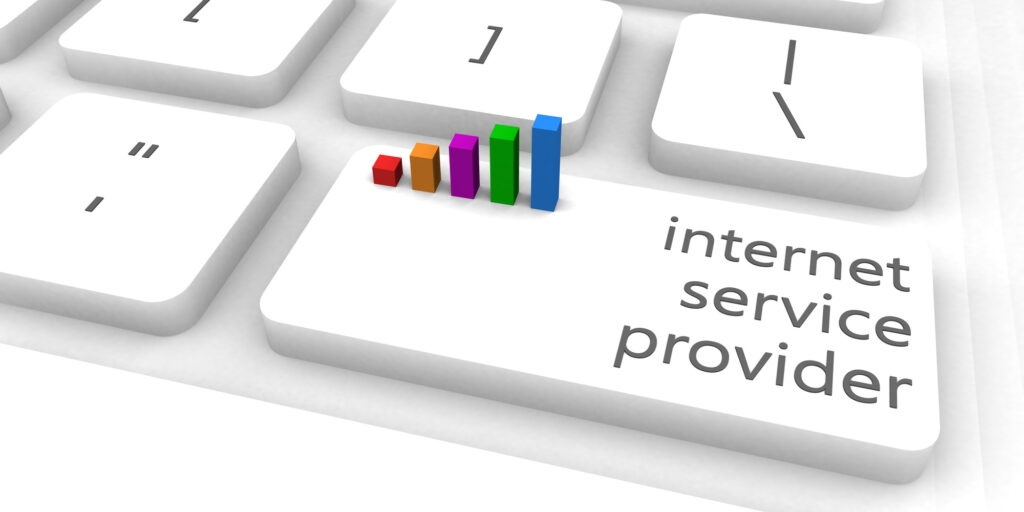How to Pick an Internet Service Provider: Everything You Need to Know

Internet Service Provider or ISP as Concept
Getting connected to the world hasn’t been easier with the help of the Internet. It’s a great help to our work, entertainment, and communication.
If you live in a populated area, you should have plenty of options for internet providers. But how to pick an internet service provider that won’t let you down?
Luckily, you’ve come to the right place for advice. We’ll cover the basics of finding a good internet provider, no matter where you live. Read on!
Analyze Your Needs
Choosing an Internet Service Provider (ISP) can be daunting, especially when you don’t know exactly what to look for. Before picking an ISP, it is best to examine first your individual needs.
Analyse which type of plan works best for you. It’s also important to consider your budget. Determine what kind of online activity you’ll be involved in.
Consider how much data and speed you will need for your activities. Those who enjoy streaming videos and playing online games should select a plan with high download and upload speed. When you have a good understanding of your needs, you can start to shop around for potential providers.
How to Pick an Internet Service Provider
As everyone has different needs, it’s important to take the time to research and compare your options for Internet providers. This is to determine which is the best that fit for your home or business. There are important factors to consider before making your decision.
The Types of Internet Connections
It’s important to thoroughly research what types of internet connections are available in your area. Various ISPs offer different types of Internet connections depending on the location.
Digital Subscriber Line (DSL)
This is the most common connection type. It can provide good download and upload speeds over phone lines.
Dial-up
This is an older method of connection. It provides the slowest connection and uses cheaper telephone lines.
Cable
It’s a good option for those living in cities and suburbs. It uses coaxial cable to provide good download speeds.
Satellite
This provides good download speeds but has extreme latency, which makes it not suitable for gaming.
Fiber-optic
This type of internet connection provides the fastest connection. It utilizes thin glass and plastic wires to transmit data. It’s a great choice if you need it for things like online gaming and streaming videos.
Comparing Internet Speeds
The connection speed refers to the rate at which data can be transferred between the ISP and your computer or gadgets. The speed can be measured in bits per second (bps) and megabits per second (Mbps).
The higher the Mbps, the faster the connection and the more data you can send and receive. Look at the upload and download speeds, as the download speed affects how quickly websites load, and the upload speed affects how quickly you can send files. The download speeds typically range from 3 Mbps for basic plans to up to or over 100 Mbps for the highest-tier plans.
Comparing the Cost
The cost of an internet connection is defined by several factors. Some ISP offer from $60 up to $100 per month for their Internet service costs. You should always analyze the total cost, associated fees, and inclusion of beneficial services.
Contract lengths are all vital to compare. Do not solely rely on the advertised monthly fees, as they often include additional taxes and fees.
Some providers will offer discounts for the first year or bundle pricing in combination with a television package. Installation or equipment charges can be expensive, so research to see what is included in the data plan you are considering and if any setup fees apply.
Consider if the money saved on the total cost upfront is worth the possibility of a price increase later. Research any additional fees, such as taxes, virtual private networks (VPNs), service cost fluctuations, and monthly modem rental fees.
Find out if there are any data caps, as that might increase your overall monthly expense. By thoroughly reviewing all of these components, you get an insight into the total cost of each plan to determine which one is more economical.
Evaluating Company Reliability
Customers should consider the reputation of the company. It’s important to choose a provider that you can depend on and trust.
You can seek opinions and referrals from friends, family, and co-workers or even talk to current customers. Visiting reliable websites like Better Business Bureau is essential. Reading online reviews from users who have utilized the provider’s services in the past is a great way to get an idea of the company’s track record.
Customers should read about the company’s Service Level Agreement (SLA) to ensure the ISP meets their needs and has the support services necessary for any potential issues. Check out the provider’s history of uptime and if any outages occurred in the past.
Make Sure Technical Support Is Accessible
It’s important to make sure to pick an internet service provider that has accessible technical support. Some ISPs offer 24/7 assistance, while others may only offer assistance via email or other online contact forms.
No one can predict what issue may occur at any time. You want to ensure that the ISP you choose has reliable technical support available when you need it.
It’s also worth checking what types of help are included with your service; from general troubleshooting advice to hardware replacement, having access to dedicated technical support can be invaluable when an issue arises. Many ISPs offer customer service tracking tools, allowing you to follow the progress of an issue or request and know when to expect a response.
These can be particularly useful for long-term issues or requests. Ultimately, make sure to research the customer service ratings and features that come with your ISP before you commit.
By taking time to research and compare potential ISP, surely you can pick an ISP that perfectly fits your need. Try to visit Xfinity Comcast Authorized Retailer for their reliable plans.
Don’t Be Afraid to Shop Around
When picking an Internet Service Provider, take into account your budget and your needs before accessing your options. Research what providers are available in your area and decide which offers the best service for the best price.
Don’t forget, customer reviews play an important role in helping to make an informed decision. Now that you know all this, it’s time to shop around to pick an internet service provider that is perfect for you!
Are you looking for more tips and tricks to improve your lifestyle? Check out our other posts!

 Server Wars 2025: Which Hosting Platforms Are Winning for Gamers?
Server Wars 2025: Which Hosting Platforms Are Winning for Gamers?  AI Tools That Make YouTube Shorts Creation Effortless
AI Tools That Make YouTube Shorts Creation Effortless  FAA Web Scheduler – An Effective Tool for Task Management
FAA Web Scheduler – An Effective Tool for Task Management  FitPeo: An App that Helps You Record and Manage Your Family Health Data
FitPeo: An App that Helps You Record and Manage Your Family Health Data  The Ultimate Collection of Sentro Knitting Machine Patterns for Every Season
The Ultimate Collection of Sentro Knitting Machine Patterns for Every Season  Optiguard: The Smart Security Camera That Fits in a Light Bulb
Optiguard: The Smart Security Camera That Fits in a Light Bulb  From Clicks to Chips: Turning Online Traffic into Loyal Casino Players
From Clicks to Chips: Turning Online Traffic into Loyal Casino Players  Managing Peripheral Diabetic Neuropathy: Holistic Approaches and Treatment Options
Managing Peripheral Diabetic Neuropathy: Holistic Approaches and Treatment Options  The Math Behind the Magic: How RTP Shapes Slot Payouts
The Math Behind the Magic: How RTP Shapes Slot Payouts